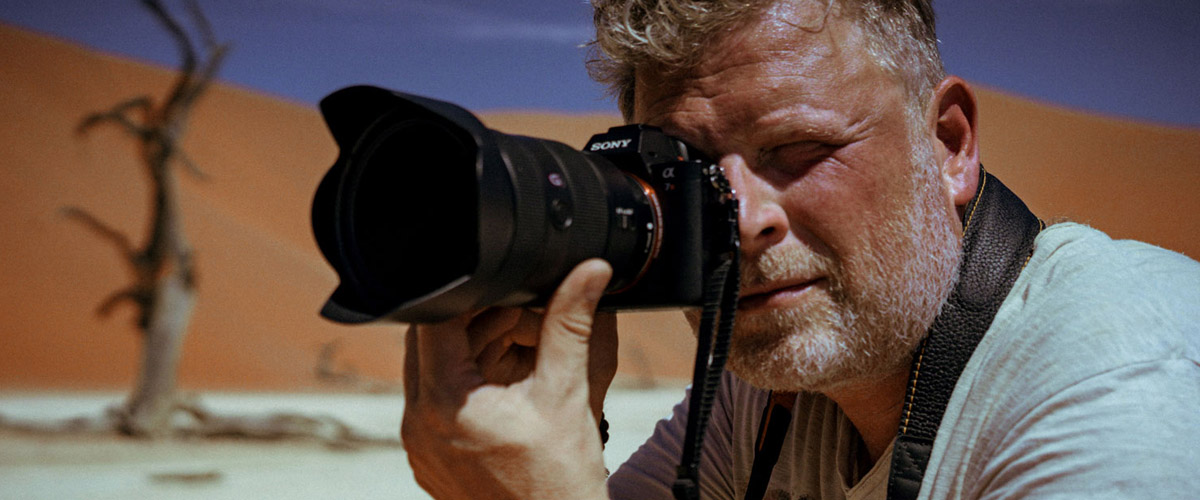Photography is an industry that is evolving as fast the rest of them. With new technologies being invented and implemented into various forms of photography, the demand for a photographer with the equipment and know how is on the rise. Interested in becoming a professional photographer? Here’s our list of 6 things you need to know for how to become a photographer.
1) Learn the Ins and Outs of Modern Photography
Well, this one may seem like the most obvious and kind-of a given seeing as you’re here and reading this, but there’s a lot of industry specific knowledge when it comes to photography in today’s day and age. You can start by asking yourself where you are on the following scale:
- Newbie – I’ve used portrait mode on my iPhone, isn’t that enough?
- Moderate Knowledge – I have experience using SLR and similar cameras that require adjusting settings, lenses, etc.
- Expert – I’m very familiar with many types of cameras and all related equipment
If you answered anything other than “Expert”, it’s probably worth brushing up on your skills and / or learning some modern techniques. There’s countless resources available online for both free and paid lessons for how to become a photographer. Our favourite for just about any kind of online learning is lynda.com. Lynda does have a monthly fee, although there are free trial periods that you can take advantage of. Another neat trick to save some money is to visit your local library – modern libraries frequently have paid learning accounts like this available for free for any library members (which is also usually a free service). Head over to lynda.com and search photography for a detailed list.
2) Purchase Professional Photography Equipment
Now that you have the know how, you’ll need to ensure that you have all of the equipment needed to capture some amazing shots. There’s a variety of equipment that is recommended in excess of generic camera and camera accessories, these include: stands, a tripod, extensions / handles, waterproof casing, a drone, and more. If you’re in the market for some of this equipment you can visit a local store that caters to photographers, or look for good deals online. Amazon.ca is always a safe bet when it comes to competitive pricing and the latest and greatest products. Looking to save some money for a little bit of an older model, local classified ad sites such as Craigslist or smart phone apps like LetGo are also good resources for finding equipment at a bit of a bargain.
3) Don't Skip the Drone
Although this is a little bit of a repeat from our last tip about getting adequate equipment as a professional photographer – we think that drone footage is something that people are looking for very frequently in photography today. Don’t skip out on purchasing a drone! Now, there is quite a variety of quality and capabilities for photography drones on the marketplace, so do a bit of research on how you think you’d like to shoot your shots and decide which would be right for you. We’ve seen drones capable of most photography tasks as low as a few hundred dollars Canadian on sites like eBay.ca as well. Just make sure your drone is going to be able to carry the camera that you’ll be using for these shots, and that you also get whatever mounting equipment for the drone that you’d need – keep reading for more on how to become a photographer.
4) Get Familiar with Photo Editing and Finishing
So, you can take great photos and you have all of the equipment to do so, but can you edit them to produce a professional looking final product. This is an important aspect of how to become a photographer and should not be overlooked. There are tons of different ways to edit photos on different platforms, from smart phones and on camera softwares, to computer programs; however, we believe that the best option with the most diverse functionality and capability is to use Adobe Photoshop on your laptop or desktop computer. Now, Photoshop is a powerful software that although the basics can be accomplished fairly easily with little experience, there are more complicated features that definitely have a learning curve to master. We’d again recommend heading over to Lynda.com to learn all there is to know about photographer editing techniques in Photoshop.
5) Get Photographer Insurance
Something that can often times be overlooked when starting a new business endeavor is acquiring insurance. This is an important part of maintaining a successful business. There are various situations where insurance will protect your photography business from both property and liability claims. Cameras and related equipment can be expensive and it’s good to have them covered, but liability claims can be even more costly and not only damage your business, but you personally as well. Netsurance offers an insurance package specifically for photographers. Check out the short video below and head over to our Photographer Insurance page for more information.
Some types of coverage to consider when thinking how to become a photographer and keep it professional include: Equipment / Property, Professional Liability (E&O), and Commercial General Liability (CGL). Again, these are all options within our Photographer Insurance package.
For more information on insurance for professional photographers from an external source: click here
6) Promote Yourself and Get Clients
You’re all set to start booking gigs! So, how do you start getting some business? With visual media being present throughout the modern persons day in so many forms, there’s no shortage of options for getting your name and services out there. We recommend creating all social media accounts and sharing your skills with both image and video – Instagram, Facebook, LinkedIn, Pinterest, and more are all good opportunities for exposure. Try to think of creative and applicable hash tags to include that may play into your niche market. When the time comes, it can also be useful to start a website and blog of your own to get exposure in search engines and on the web in general – this is an entire topic in itself that we’ll dive into at a future date.
Now get out there and start getting some awesome captures. We hope you enjoyed our 6 tips on how to become a photographer and how to keep it professional.





